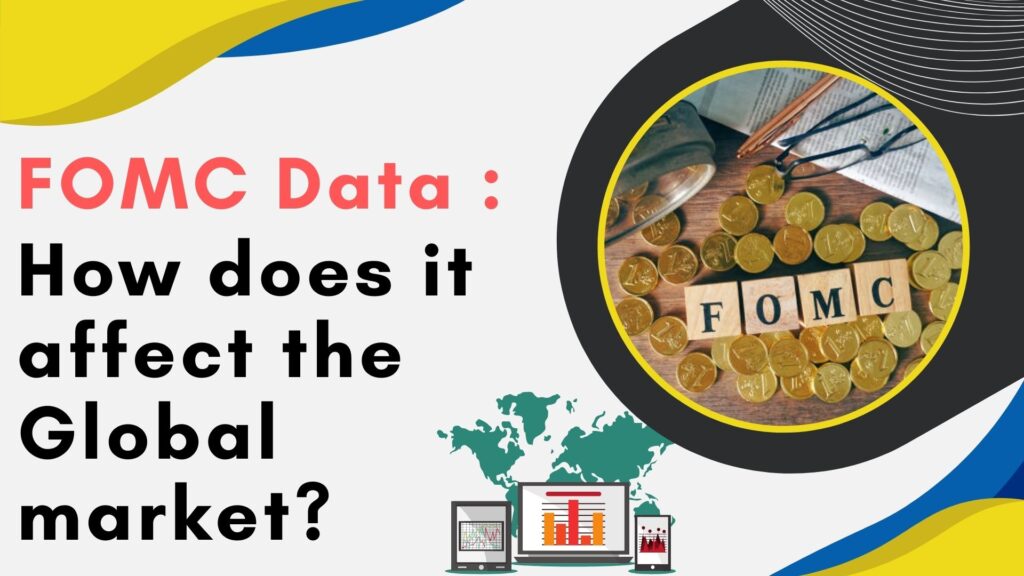
In the world of finance, few events are as closely watched and analyzed as the meetings of the Federal Open Market Committee (FOMC). This committee, a part of the United States Federal Reserve System, holds significant influence over the country’s monetary policy. But what exactly is the FOMC, and how does its data affect the financial markets?
This data brings with it high volatility in gold, silver and other commodities as well as pee the interest rates, monetary policy decisions or other decision.
In this blog, we will delve into the intricate relationship between FOMC data and the market.
So without further adieu, let’s begin!!
Understanding the FOMC:

The Federal Open Market Committee is the policymaking arm of the Federal Reserve System, responsible for overseeing monetary policy in the United States. It comprises 12 members, including the seven governors of the Federal Reserve Board and five Reserve Bank presidents. The FOMC meets approximately eight times a year to discuss and make decisions regarding interest rates, money supply, and other monetary policy tools.
FOMC Data: What to Watch Out For?
The FOMC’s primary tool for influencing monetary policy is the federal funds rate, which is the interest rate at which banks lend reserves to other banks overnight. Changes in the federal funds rate have far-reaching implications for the broader economy and financial markets. Investors closely monitor FOMC meetings for any indications of potential rate changes.
Here are some key data points and statements released during FOMC meetings that can impact the markets:
Interest Rate Decisions:
The most significant market-moving event during FOMC meetings is the announcement of changes in the federal funds rate. An increase in interest rates is generally seen as a signal of tightening monetary policy, which can lead to lower borrowing and spending by both consumers and businesses. Conversely, a rate cut may stimulate economic activity.
Economic Projections:
The FOMC releases quarterly economic projections, including forecasts for GDP growth, inflation, and the unemployment rate. These projections can influence market sentiment, especially if they deviate significantly from consensus expectations.
Press Conferences:
The FOMC chair holds a press conference after some meetings to provide additional context and explanations for the committee’s decisions. These press conferences can result in market volatility if unexpected statements are made.
Impact on Financial Markets
The release of FOMC data can trigger significant market reactions:
Equity Markets:
Stock prices can be highly sensitive to changes in interest rates and economic outlook. A hawkish (favoring higher interest rates) FOMC statement can lead to a sell-off in equities, while a dovish (favoring lower rates) statement can boost stock prices.
Bond Markets:
Fixed-income securities, such as bonds, are directly affected by interest rate changes. When the FOMC raises rates, bond prices typically fall, leading to higher yields. Conversely, rate cuts can drive bond prices higher.
Currency Markets:
Exchange rates can experience sharp movements in response to FOMC actions and statements. Higher interest rates can attract foreign capital, strengthening the domestic currency, while lower rates can have the opposite effect.
Commodities:
The prices of commodities like gold and oil can be influenced by changes in interest rates and the dollar’s strength. Higher rates tend to pressure commodity prices, while lower rates can provide support.
Final note:
In the intricate world of financial markets, the Federal Open Market Committee’s data and decisions wield tremendous power. The FOMC’s ability to set interest rates and provide forward guidance can shape investor sentiment, impact asset prices, and influence economic outcomes.
Therefore, keeping a close eye on FOMC meetings and their data releases is an essential practice for anyone involved in the financial markets, from individual investors to multinational corporations. Understanding how FOMC data affects the market is a key step towards making informed investment decisions in a dynamic and ever-changing financial landscape.
That’s all for today folks. We’ll be back with more soon!!
Until then, Happy Trading!!
Commodity Samachar
Learn and Trade with Ease